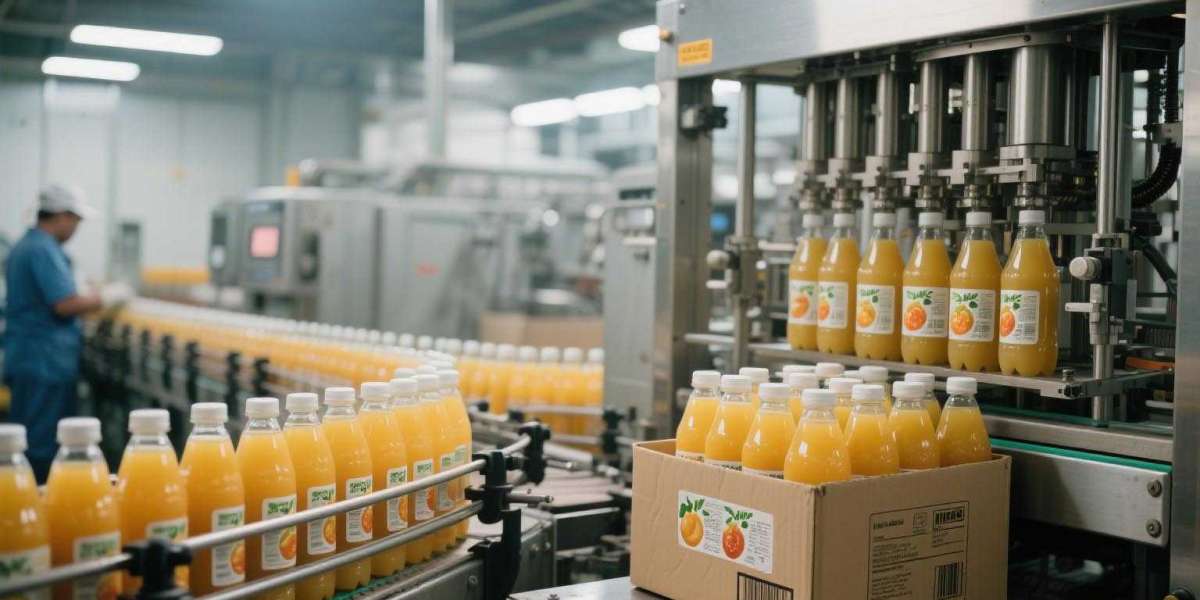In the dynamic beverage industry, efficient juice packaging is crucial for maintaining product freshness, ensuring safety, and meeting consumer demands. Whether you’re a small business owner or a large-scale manufacturer, choosing the right juice packing machine can significantly impact your operational costs and productivity. This guide breaks down key packaging options, machine types, cost factors, and practical insights to help you make informed decisions—without the hard sell.
Choosing the Right Packaging for Your Juice Products
The ideal packaging for fruit juice depends on factors like shelf life, transportation needs, and target market. Here’s a breakdown of popular options:
a.Pouches
- Advantages: Lightweight, cost-effective, and perfect for single-serve portions.
- Applications: Ideal for on-the-go juices, smoothies, or kids’ drinks.
- Machinery: Use a pouch packing machine for heat-sealing. Semi-automatic models suit small batches, while fully automatic systems handle high volumes.
b.Bottles (Glass PET)
- Glass Bottles: Preserve flavor and appeal to premium markets but require specialized handling.
- PET Bottles: Shatterproof, lightweight, and cost-efficient for mass production. A PET bottle packing machine offers scalability for large operations.
c.Cartons (Tetra Pak)
- Advantages: Long shelf life, eco-friendly, and convenient for storage.
- Consideration: Requires specialized machinery, which may have a higher upfront cost but offers long-term efficiency for bulk production.
d.Cups and Packets
- Cups: Popular in foodservice settings; sealed with a cup packaging machine for quick service.
- Packets: Single-use portions for vending machines or travel; ideal for concentrated juices or powdered mixes.
Understanding Juice Packing Machine Costs
Juice packing machine prices vary widely based on automation level, capacity, and features. Here’s a general overview to help you budget:
a.Pouch Packing Machines
- Manual: $500–$3,000 (suitable for startups or low-volume production).
- Semi-Automatic: $3,000–$10,000 (balances cost and efficiency for small-to-medium businesses).
- Fully Automatic: $10,000–$50,000 (high-speed options for large-scale operations, e.g., 90–100 pouches per minute).
b.Key Cost Drivers
- Automation: Fully automatic machines reduce labor but come with higher upfront costs.
- Capacity: Machines rated for 3000 bottles per hour (BPH) or 600–800 pieces per hour (PPH) cater to different production scales.
- Special Features: Multi-nozzle systems (e.g., 4-nozzle machines) enhance filling speed but add to costs.
- Material Compatibility: Machines for glass bottles often require more robust components than those for flexible pouches.
Essential Equipment for a Juice Packaging Line
Building an efficient packaging line involves more than just a single machine. Here’s the core equipment you’ll need:
- Role: Accurately dispense juice into containers.
- Options: Choose from budget-friendly single-nozzle models or high-speed multi-nozzle systems (e.g., 4-nozzle machines for faster throughput).
b.Capping Sealing Machines
- Purpose: Ensure leak-proof packaging. For pouches, heat-sealing machines are standard; bottles may require screw-capping or pressure-sealing mechanisms.
- Labeling: Applies brand logos, nutritional info, and barcodes. Automated systems integrate seamlessly with high-speed lines.
- Batch Coding: Prints expiry dates and batch numbers for compliance with food safety regulations.
d.Specialized Machines for Niche Products
- Mango/Litchi Juice: Dedicated machines handle pulpy textures and prevent clogging, ensuring smooth filling and sealing.
- Nozzle-Based Systems: Single/double nozzles for small batches; four-nozzle setups for scaling production without compromising accuracy.
How Juice Packing Machines Streamline Operations
Most modern machines follow a standardized workflow to minimize waste and maximize speed:
- Container Feeding: Pouches, bottles, or cups are loaded (manually or via conveyor belts).
- Precision Filling: Sensors ensure consistent juice volume, reducing overfill and spillage.
- Sealing/Capping: Heat or pressure seals containers tightly, with options for tamper-evident features.
- Labeling Coding: Automated systems apply labels and print essential information in real time.
- Quality Check: Final inspections ensure packages are leak-free and meet weight/volume standards.
Tips for Choosing the Right Machine
- Assess Your Scale:
- Small Business: Start with semi-automatic machines (e.g., 20–40 BPM) for flexibility and lower costs.
- Large Producer: Invest in fully automatic systems (e.g., 100+ pouches/minute) to handle high demand.
- Prioritize Flexibility: Choose machines that adapt to multiple packaging types (e.g., pouches and bottles) to future-proof your line.
- Maintenance Considerations: Opt for models with easy-to-clean components and reliable after-sales support to minimize downtime.
- Regulatory Compliance: Ensure machines meet food-grade hygiene standards (e.g., stainless steel construction) and can print required labels for allergens or nutritional data.
Investing in the right juice packing machine is about balancing upfront costs with long-term efficiency. Whether you opt for a budget-friendly manual pouch sealer or a high-speed automatic PET bottling line, focus on scalability, ease of use, and compatibility with your product’s unique needs. By understanding packaging types, machinery capabilities, and cost drivers, you can build a streamlined process that enhances productivity, reduces waste, and delivers quality products to consumers.








